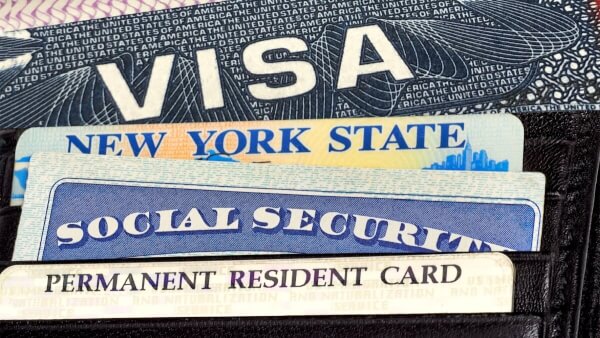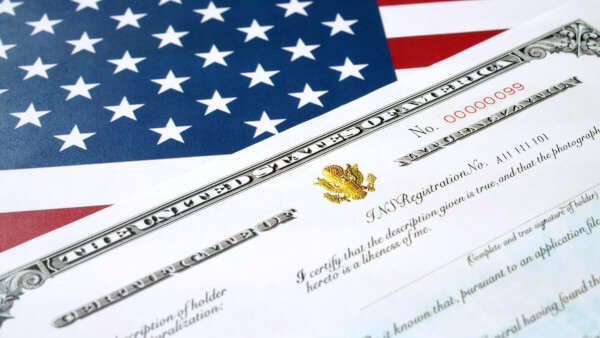Transferring your international driver's license to the US: step-by-step
Your full guide to updating your foreign driver's license to the US.

From eating 12 grapes for good luck as the clock strikes midnight to hoping to hit el gordo (literal translation: ‘the fat one’) in a special lottery.
Here are five of the top traditions that expats miss when away from home for the holidays as told to Wise by Spaniards living in the U.S.

Celebrated for over 100 years on New Year’s Eve in Spain, this beloved celebration is televised every year from the Puerta del Sol square in Madrid.
As the clock strikes midnight on Nochevieja (literally ‘old night’), people eat 12 grapes (one for each bell toll) in order to welcome in each month of the new year.
If you eat all of the grapes during that time you also receive luck for each month of the coming year.

In Spain, the largest Christmas festivities don’t take place until January 5 and 6 (“Day of the Magician Kings,” a public holiday).
On the evening of the fifth, many cities host a colorful parade (“Cabalgata de Reyes Magos”) in which three kings ride on camel shape floats. Then, before children go to sleep early, they set their shoes on a windowsill or fireplace, and leave out liqueur and a cracker for three reyes magos.
Those children who were well-behaved over the past year will awake to find presents in their shoes, but those who were more naughty than nice will find “coal” (often resembled through sugar cubes) instead.
On both days, people savor the ring-shaped Roscón de Reyes (King’s Cake), a delicious delicacy in which cream is sandwiched between two layers of sweet pastry cake and topped with dried fruit. A traditional trinket of the Christ Child hidden in the cake differentiates it from other desserts.
In Spain, perhaps the best (material) Christmas gift of all is winning the famed Christmas Lottery, the second longest running lottery in the world.
The biggest prize, el gordo, is worth four million euros. The cost of each décimos ticket is 20 euros.
Every year in a popular televised event on December 22, children from Madrid’s Colegio de San Ildefonso sing out the prizes, often for a few hours due to the sheer number of them.
They draw from bombos (rotating drums): in one there are five-digit numbers from the lottery tickets (i.e. 45956, 45957, etc) and in the other there are the prizes (ranging from one thousand euros to four million) to be awarded to the corresponding number.

The Spanish adore their almendras (almonds), as seen through all of the Christmastime sweets that use them as a core ingredient.
Both the hard Turrón duro and softer turrón blando are nougats comprised of almonds, honey, sugar and egg white. Mazapán dates all the way back to the fifteenth century in Toledo, with almonds, potatoes and sugar as its main ingredients.
For a softer sweet, holiday-goers enjoy marquesas, an almond cupcake, or polvorones, a Spanish shortbread made of sugar, flour, nuts and milk.
Throughout the holiday season, the Spanish set up beautiful displays of Belén (Bethlehem) to depict the birth of Jesus.
Virgin Mary, St Joseph, the angels, shepherds and the Reyes Magos are spread across the scene as well.
They are often constructed at home or more elaborately displayed in churches, with buildings, mills and paths surrounding the holy scene.
Wise charges just 1% or 0.7% over $5,000, far less than that wire fee your bank offers.
Save up to 8x when sending money overseas. Unlike banks, with Wise you don't pay a mark-up in the exchange rate when your money is converted into another currency. And you'll save even more by avoiding the international Swift fees and the intermediary banks, when you send and receive money abroad.
Check here how much you'd pay with Wise.
It's cheap, fast, and you know exactly how much you pay and how much reaches the destination. With no unpleasant surprises.
*Please see terms of use and product availability for your region or visit Wise fees and pricing for the most up to date pricing and fee information.
This publication is provided for general information purposes and does not constitute legal, tax or other professional advice from Wise Payments Limited or its subsidiaries and its affiliates, and it is not intended as a substitute for obtaining advice from a financial advisor or any other professional.
We make no representations, warranties or guarantees, whether expressed or implied, that the content in the publication is accurate, complete or up to date.

Your full guide to updating your foreign driver's license to the US.

Whatever your reason is for moving to the US, this guide aims to help you figure out the most important costs you'll face when you live there.

Find all you need to know about getting a personal loan for H-1B visa holders in this guide.

Everything you need to know about the US certificate of naturalization.

The US welcomes large numbers of new arrivals every year — and getting a great job to both gain experience and set down roots is a core part of the American...

Find everything you need to know about the US citizenship test, including the USCIS questions and answers.